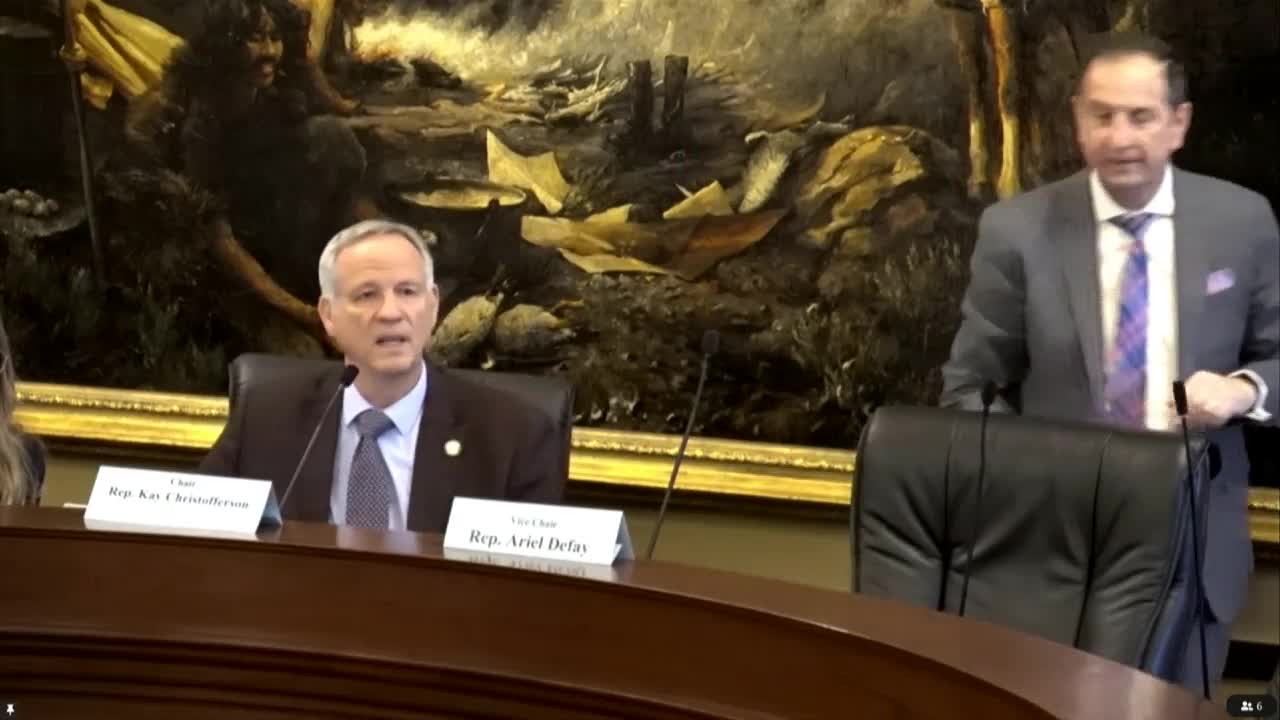Transportation committee adopts third substitute to HB349, directs health department to convene stakeholders on state website links
Get AI-powered insights, summaries, and transcripts
Subscribe
Summary
Representative Doug Owens presented the third substitute to House Bill 349, and the committee adopted the substitute and an amendment that clarifies plan ownership while replacing prior education and contractor provisions with a Health Department–led stakeholder process for state website link prioritization.
Representative Doug Owens on Friday presented the third substitute to House Bill 349, an organ-donation bill, and the Transportation Interim Committee adopted it with a subsequent amendment to streamline plan ownership.
The measure removes an earlier education requirement and a provision asking state procuring agencies to encourage contractors to educate employees. Instead, the bill directs the Utah Department of Health to assemble stakeholders and develop a regularized process for deciding which third-party resources may be linked from state websites (for example, the tax website or hunting and fishing license pages). "We took out the education piece entirely," Owens told the committee, and "we took out a provision related to contractors" that members had found clumsy.
The sponsor said the replacement approach requires the health department to convene a stakeholder group to compare competing worthy causes (organ donation, suicide prevention, cancer screening, etc.) and recommend a fair, repeatable method for prioritizing links. "The health department assembles stakeholders and the proper people to consider how to preference these different groups," Owens said.
Representative Thurston asked for a small wording change to lines 58–61 so the document consistently names the department as the owner of the comprehensive plan; he moved to strike the word "coalitions" on line 61. The committee adopted that amendment before passing the bill out favorably. Representative Peterson, who helped negotiate the changes, praised the collaborative work: "It's painful to bring your baby to the capital, and someone thinks that baby's ugly, and we gotta fix something," he said, later adding he appreciated the sponsor's willingness to work on the bill.
Committee action: the committee adopted the third substitute, approved the amendment deleting the word "coalitions" on line 61 to make plan ownership consistent, and voted to forward HB349 (third substitute as amended) with a favorable recommendation. The transcript records the committee's vote as unanimous.
No public testimony was recorded on the bill in the transcript. Committee members said the changes should reduce the bill's fiscal note and remove provisions that had raised concerns at prior hearings.
Looking ahead, staff were asked to check line references and to ensure final drafting consistency before the bill moves to the next step.
